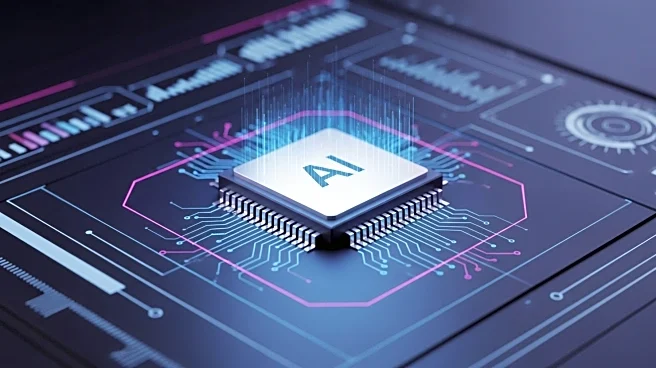What's Happening?
NetSuite has introduced its MCP connector, which integrates Agentic AI to enhance business automation capabilities. Agentic AI is designed to be goal-oriented, capable of learning, and adapting to dynamic environments. It can make independent decisions and orchestrate complex workflows with minimal human intervention. Unlike traditional automation bots, Agentic AI can handle complex challenges by understanding natural language, interpreting context, and engaging in problem-solving. It is trained to avoid the hallucinations that affect some generic AI tools. The AI system can access multiple business systems and act on a user's behalf, making it particularly useful for financial reporting. The MCP connector provides businesses with a flexible and scalable way to connect NetSuite to their AI platform of choice, supporting bring-your-own-assistant and an extensible, protocol-agnostic design.
Why It's Important?
The integration of Agentic AI into NetSuite's MCP connector represents a significant advancement in business automation technology. By enabling AI to autonomously handle complex tasks, businesses can achieve greater efficiency and productivity. This development is particularly important for industries that rely heavily on data processing and reporting, such as finance and logistics. The ability to generate actionable insights and execute plans without coding can reduce operational costs and streamline workflows. Companies that adopt this technology stand to gain a competitive edge by optimizing their processes and improving decision-making capabilities. Additionally, the flexibility of the MCP connector allows businesses to choose their preferred AI platform, ensuring they are not locked into a single provider.
What's Next?
As businesses begin to implement NetSuite's MCP connector with Agentic AI, they may experience shifts in operational strategies and workforce dynamics. The adoption of AI-driven automation could lead to changes in job roles, with employees focusing more on strategic tasks rather than routine operations. Companies might also explore further integration of AI into other areas of their operations, potentially leading to new innovations and efficiencies. Stakeholders, including business leaders and technology providers, will likely monitor the impact of this integration closely to assess its effectiveness and explore additional applications.
Beyond the Headlines
The introduction of Agentic AI into business systems raises important ethical and legal considerations. As AI systems gain more autonomy, questions about accountability and transparency become crucial. Businesses must ensure that AI actions align with their ethical standards and comply with regulations. The potential for AI to make independent decisions also necessitates robust guidelines and oversight to prevent misuse or errors. Long-term, the integration of AI into business processes could lead to cultural shifts in how work is perceived and executed, emphasizing collaboration between humans and machines.











